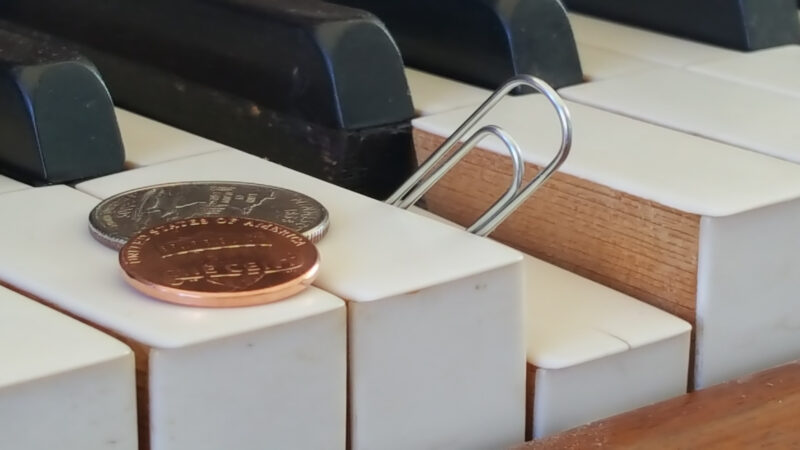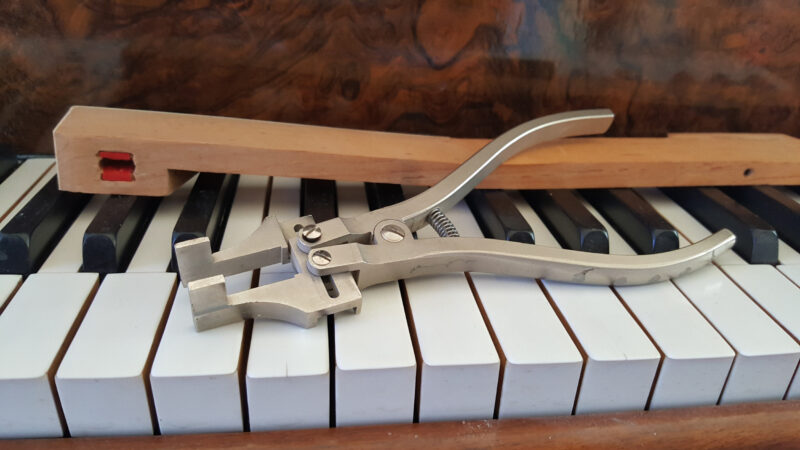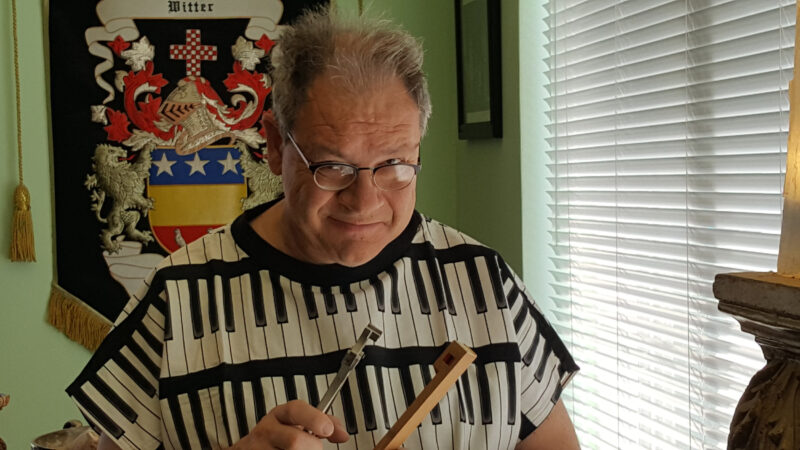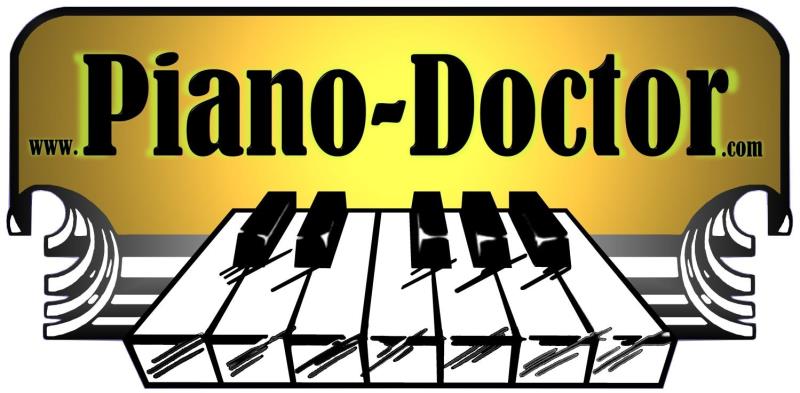Minor Repair
In many cases, a sticking key is a small thing and I’ll repair it at the same time as tuning your piano; if it is just one or two sticking keys, with a minor cause, I will not even charge you for it! If there would be more, I will show you right there on your instrument what the cause is and also leave you a written estimate for your piano so you have something in your hands.
Three most common reasons why your piano key is sticking:
1) There could be foreign objects between or under the keys that are easily removed, like paper clips or hair clips, pencils, coins, etc.
2) The keyslip (the long piece of wood right below and in front of the keys) is too tight. This problem can be solved very easily as well by putting some cardboard between the keyslip and the key frame.
3) Tight bushings or expanded wood: hidden from the player’s eyes are two holes in every single piano key through which metal pins run to hold the key in place as it goes through its vertical motion. Attached to the sides of these holes is felt, which are also called bushings. By using a special tool, made for that sole purpose, it compresses the felt which solves this problem. Expanded or swollen wood on the bottom of the key in the balance rail pin can also cause the piano key to stick. Here as well, the wood can be carefully compressed with a special tool that will get the key back to its proper functionality.
In most cases, it requires just a few simple steps and everything is back to its original working condition. If you ever see a screw driver being used, other than loosen a screw, for any of the previously stated scenarios where a special tool is required, you then have a legitimate reason to freak out! And of course, one can make a mountain out of a molehill and charge you an arm and a leg for these simple repairs! I have 40 years of experience in tuning and repairing pianos, including total restorations on pianos and pianofortes with cutting edge procedures. I will be fast, efficient, and fair and it requires knowledge, skills, attention to details, and passion to extract the very best from every piano.
In many cases, a sticking key is a small thing and I’ll repair it at the same time as tuning your piano; if it is just one or two sticking keys, with a minor cause, I will not even charge you for it! If there would be more, I will show you right there on your instrument what the cause is and also leave you a written estimate for your piano so you have something in your hands.
Three most common reasons why your piano key is sticking:
1) There could be foreign objects between or under the keys that are easily removed, like paper clips or hair clips, pencils, coins, etc.
2) The keyslip (the long piece of wood right below and in front of the keys) is too tight. This problem can be solved very easily as well by putting some cardboard between the keyslip and the key frame.
3) Tight bushings or expanded wood: hidden from the player’s eyes are two holes in every single piano key through which metal pins run to hold the key in place as it goes through its vertical motion. Attached to the sides of these holes is felt, which are also called bushings. By using a special tool, made for that sole purpose, it compresses the felt which solves this problem. Expanded or swollen wood on the bottom of the key in the balance rail pin can also cause the piano key to stick. Here as well, the wood can be carefully compressed with a special tool that will get the key back to its proper functionality.
In most cases, it requires just a few simple steps and everything is back to its original working condition. If you ever see a screw driver being used, other than loosen a screw, for any of the previously stated scenarios where a special tool is required, you then have a legitimate reason to freak out! And of course, one can make a mountain out of a molehill and charge you an arm and a leg for these simple repairs! I have 40 years of experience in tuning and repairing pianos, including total restorations on pianos and pianofortes with cutting edge procedures. I will be fast, efficient, and fair and it requires knowledge, skills, attention to details, and passion to extract the very best from every piano.







